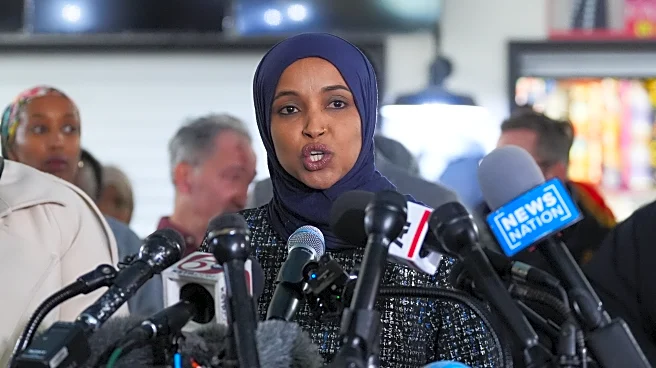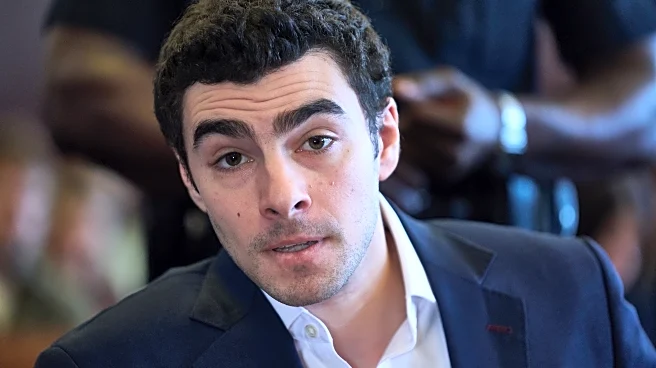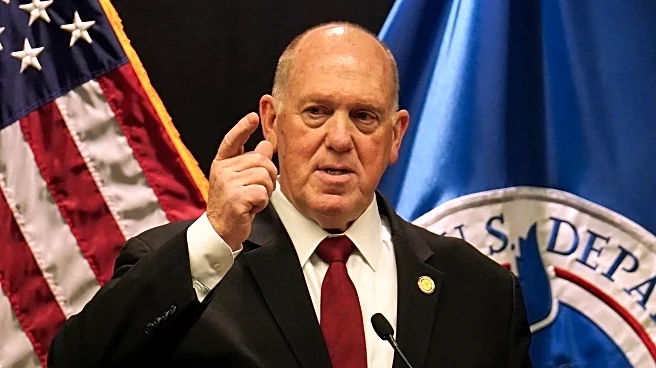What's Happening?
President Trump has outlined specific conditions for imposing major sanctions on Russia, requiring NATO members to cease Russian oil consumption and join sanctions on China and India. This move is part of a broader pattern of Western promises that have yet to materialize into effective action against Russia. The European Commission is also considering using Russia's frozen assets as leverage, but this remains hypothetical. The ongoing cycle of sanctions rhetoric has left Ukraine reliant on unfulfilled Western pledges, while Russia continues to adapt to the existing restrictions.
Why It's Important?
The conditions set by President Trump for sanctions highlight the complexities and challenges in achieving unified Western action against Russia. The requirement for unanimous NATO action and the inclusion of China and India in sanctions pose significant hurdles. This situation underscores the geopolitical tensions and the difficulty in implementing effective economic measures against Russia. The lack of decisive action could embolden Russia, as it continues to exploit loopholes and maintain its strategic objectives despite financial constraints.
What's Next?
The potential for increased sanctions remains contingent on Western allies' ability to coordinate and implement the necessary measures. The ongoing geopolitical dynamics suggest that further discussions and negotiations will be required to address the challenges posed by Russia's actions. The effectiveness of future sanctions will depend on the political will and cooperation among Western nations.
Beyond the Headlines
The psychological impact on Ukraine, caught between hope and frustration, is significant. The inconsistency in Western political will creates uncertainty and anxiety for Ukrainian officials and citizens. Additionally, Russia's strategy of long-term exhaustion of Western resilience poses a broader challenge to international stability.









